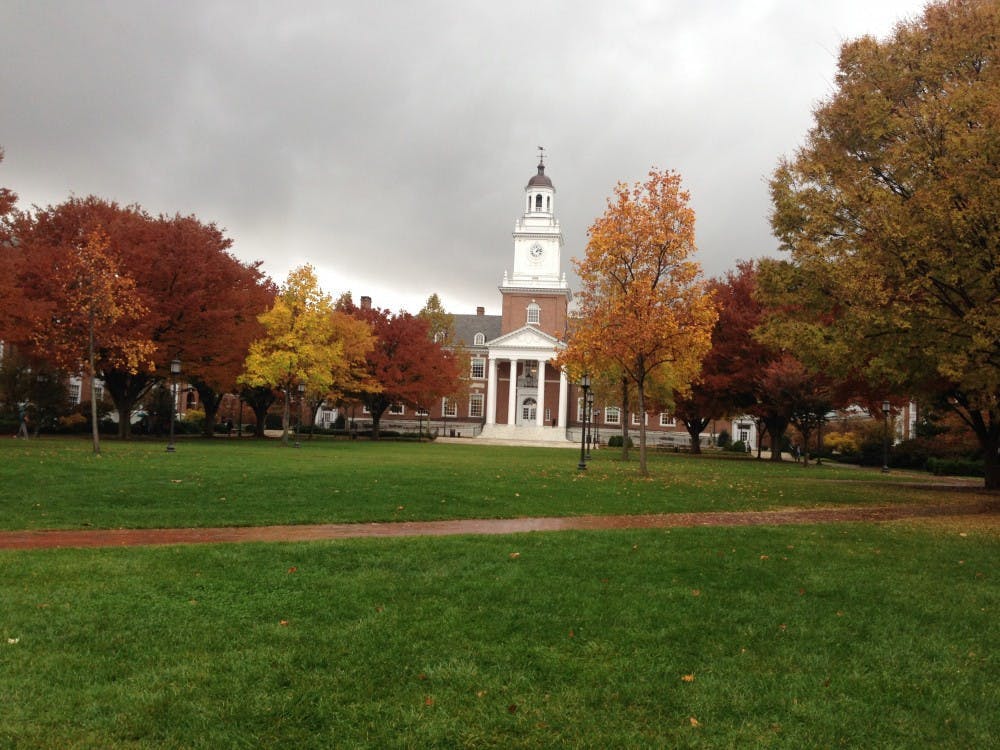The Student Government Association (SGA) held its weekly meeting on March 8 to discuss the transition to the University’s new dining contract, the transferal of more clubs under SGA oversight and representative reports.
Dining service transition
The University will be transitioning from Bon Appétit to a self-operated dining service after this year. Minor construction for this transition will begin during the summer of 2022.
Assistant Vice Provost of Dining Matt Moss spoke about how the new service will place an emphasis on student input and participation in their dining experiences. He especially emphasized efforts to provide more diverse options, including culturally authentic foods.
- Moss elaborated on the ways the new service will expand and increase student engagement. He mentioned that the University had identified a separation between students and dining staff faculty. In the new program, staff wants to provide increased student employment opportunities in dining, like a social media team and student managing. He suggested that this would be a “good way to bring students into the [dining] operation.”
- Junior Class Senator Reid Brotmann expressed that he is pleased by the new proposed student feedback system to the food. Moss emphasized that curating the meals to what students like and dislike is a large part of the new program. Brotmann asked when this system is expected to officially be put in place. Moss answered, “Our goal is to have it in by the fall; if not by the fall, then certainly by the spring.”
- Moss mentioned numerous times that this process is being sped up, with the normal time period for such a project being three years. SGA Executive President Mehak Ali questioned why this was the case. Moss responded that Bon Appétit’s contract was set to expire during the pandemic, but due to the health circumstances, its contract was extended. Moss said that with the new program, they are hoping that “Hopkins Dining [becomes] the best in the country.”
Public input period
The public input session was filled with student comments from the Debate Council and Hopkins Model United Nations (MUN). These clubs, along with three others, will be moved from under the Office of the Dean of Student Life (DoSL) to SGA. Student members were under the impression that their funding would be cut due to this move. Many expressed frustrations with this, especially with how it would impact the diversity and accessibility of the clubs.
- Junior Harsh Bhasin, a member of the Debate Council, cited how if funds were to be cut, the club would not be accessible to first-generation or limited-income students. Other speakers echoed his point in their speeches.
- There was deliberation over whether to allocate additional time for public input past the typical 15 minutes. After senator and commenter requests, Executive Vice President Breanna Soldatelli extended this time due to the special circumstances.
- Hopkins MUN member Kylie Ning expressed how she had been told that the Hopkins MUN club “wastes money” and that they are “spoiled rich kids.” She further explained the lengths that club members go to save money on their trips and events.
- At the conclusion of the public input period, Junior Class Senator Obi Onyinanya and Executive Treasurer Karen He informed the attendees that it was untrue that their funding would be cut and that all their funding from DoSL would be moved with them to SGA.
Student Activities Commission (SAC) guidelines confirmation
Onyinanya and He gave a briefing on mid-semester finances. They went into further depth on the SAC guidelines, specifically discussing the transition from monthly grants for clubs to event-based grants.
- Onyinanya discussed a new proposal to no longer require student groups under SGA to fill out financial allocations but make it optional so that groups can receive however much funding that they need.
- One change that will occur is that SGA will be asking for more specific descriptions on how money will be spent.
- Their future goal is for student groups to become more self-sufficient.
Correction: The previous version of this article incorrectly stated that Associate Director for Leadership Development Carolyn Harris made a statement correcting student group budget concerns. Harris was not present at the meeting.





